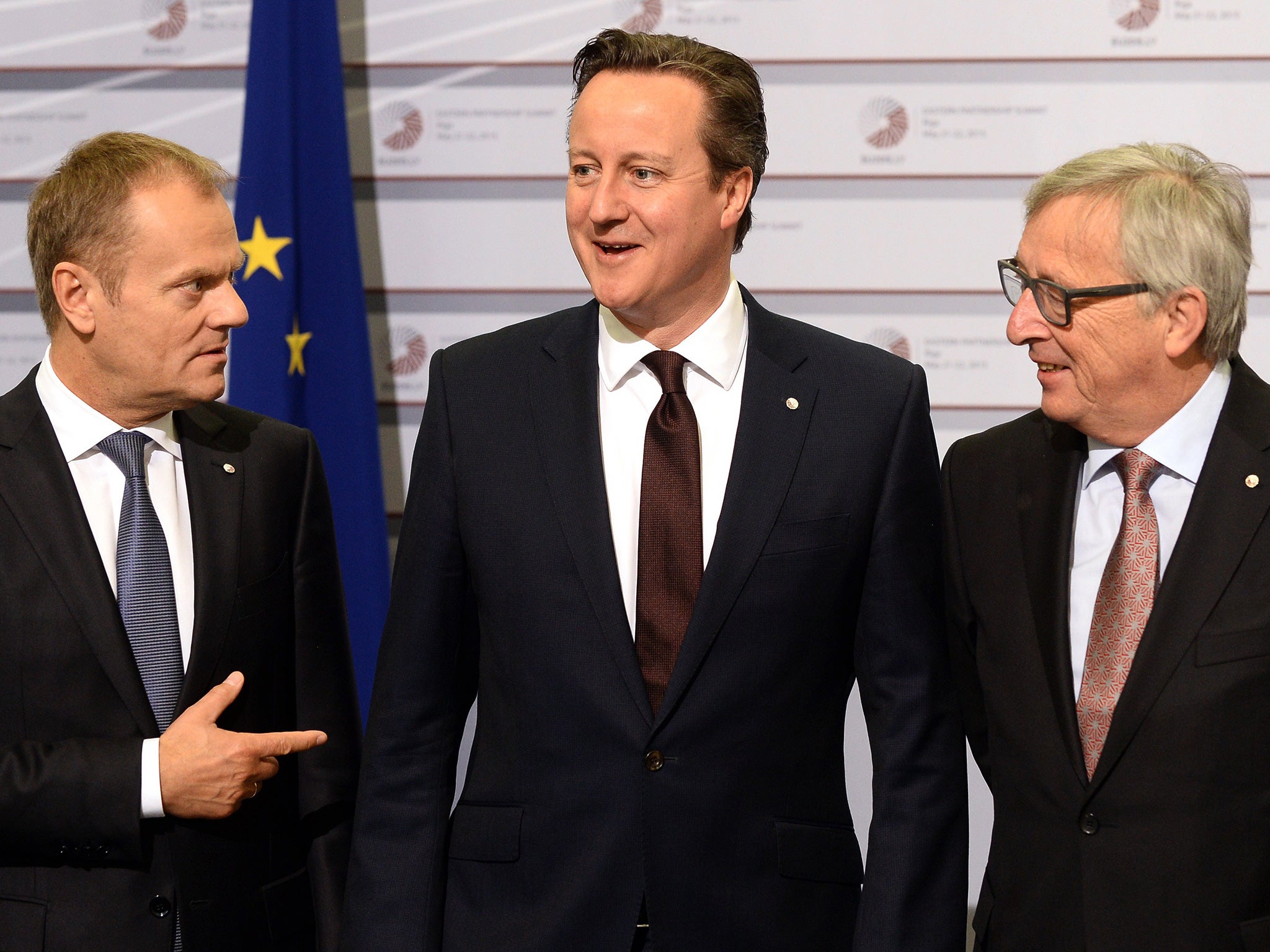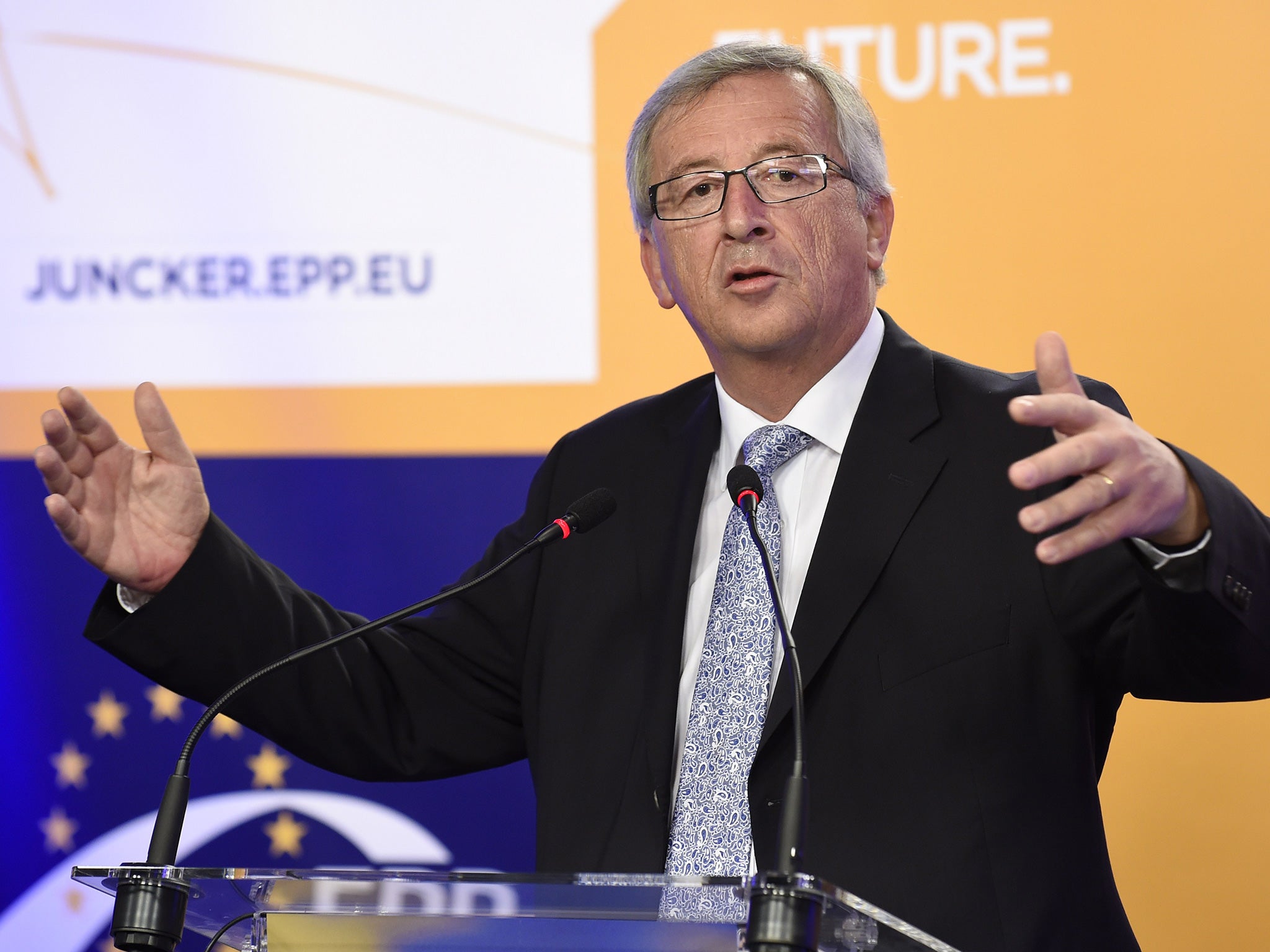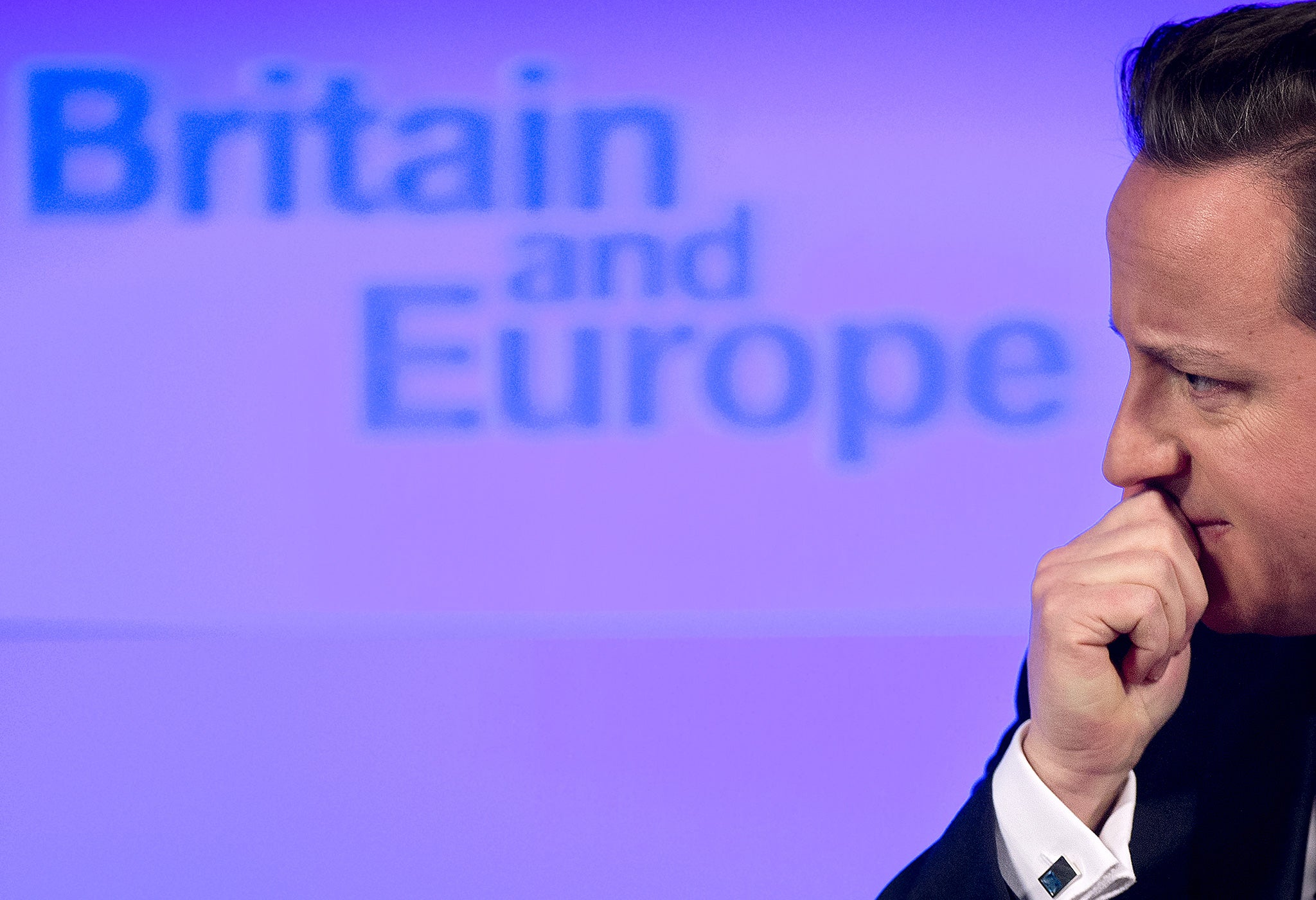David Cameron hints at early EU referendum during Riga visit
PM told other European leaders election victory has given him a fresh mandate

Your support helps us to tell the story
From reproductive rights to climate change to Big Tech, The Independent is on the ground when the story is developing. Whether it's investigating the financials of Elon Musk's pro-Trump PAC or producing our latest documentary, 'The A Word', which shines a light on the American women fighting for reproductive rights, we know how important it is to parse out the facts from the messaging.
At such a critical moment in US history, we need reporters on the ground. Your donation allows us to keep sending journalists to speak to both sides of the story.
The Independent is trusted by Americans across the entire political spectrum. And unlike many other quality news outlets, we choose not to lock Americans out of our reporting and analysis with paywalls. We believe quality journalism should be available to everyone, paid for by those who can afford it.
Your support makes all the difference.David Cameron raised the prospect of an early referendum on European Union membership as he launched a diplomatic whirlwind to renegotiate Britain’s place in the EU.
He told other European leaders he had a fresh mandate following his general election victory to win back powers from Brussels to London as he fired the opening shots of what is bound to be a long and tortuous process.
Speaking at the end of an EU summit in the Latvian capital Riga, he said: “I want to make early progress. The sooner we get on with this, the better.”
Mr Cameron will hold detailed talks over his reform plans on Bank Holiday Monday with the European Commission president, Jean-Claude Juncker, at his official country residence at Chequers.

He will turn his attention to domestic matters with the Queen’s Speech on Wednesday before travelling to Berlin and Paris for meetings with Angela Merkel and Francois Hollande. He will then travel to Warsaw for talks with the Polish Prime Minister Ewa Kopacz.
Mr Cameron admitted that he had not encountered a “wall of love” during the summit, which formally concentrated on the EU’s relationship with former Soviet states such as Ukraine.
But he said: “We need to address the concerns of the British people. They are not happy with the status quo. Frankly nor am I.”
The Prime Minister listed his main concerns as action to stem the tide of EU migrants to Britain by bringing in “commonsense restrictions” on their entitlement to benefits, scrapping “unnecessary and burdensome” rules from Brussels and worries that the UK was “being driven towards an ever closer union”.
He signalled that he wanted to press on as a matter of urgency with the negotiations and to get momentum behind the talks well ahead of the summer break.
He is committed to staging a membership referendum by the end of 2017, but aides say he wants to keep open the option of staging it earlier to end uncertainty over the question of Europe.
Mr Cameron warned that Britain was going to hear “loads of stuff” from critics of its demands, but insisted he was confident of eventually hammering out agreement.
“I’m going to get my head down, have the negotiations and deliver,” he said.
During the summit, Mr Cameron briefly met the leaders of Latvia, Poland, Hungary and Sweden as well as the European Council President Donald Tusk.

British officials stressed the complexity of the talks ahead and said it was just as important to focus on smaller EU members as well as the major players such as Germany and France. One said: “There are 27 nuts to crack.”
A crucial sticking-point will be over Mr Cameron’s insistence that changes to EU nationals’ entitlement to benefits are enshrined in EU treaties. The French and other governments are strongly opposed to the move.
The official added: “The focus more of these discussions [at Riga] is to set out the reason why he is doing this, the views of the British people about the EU, the fact that they are not happy with the status quo and what they need to change. It will be broader brush than really specifics of working through things.”
A foretaste of the challenges facing Mr Cameron came when Martin Schulz, the German Social Democrat who is president of the European Parliament, said: “I don’t expect a difficult debate with David Cameron today. Debates with David Cameron are always difficult, here or elsewhere.
A Tory MP, Chris Heaton-Harris, also warned Mr Cameron he would need to adopt a tough stance to satisfy Eurosceptic backbenchers.
Mr Heaton-Harris told Radio 4: “I do think he needs to push for treaty change, I think it makes it much clearer in legislative terms what is in and what is out of the renegotiation package.”
Join our commenting forum
Join thought-provoking conversations, follow other Independent readers and see their replies
Comments